Alice Hardesty
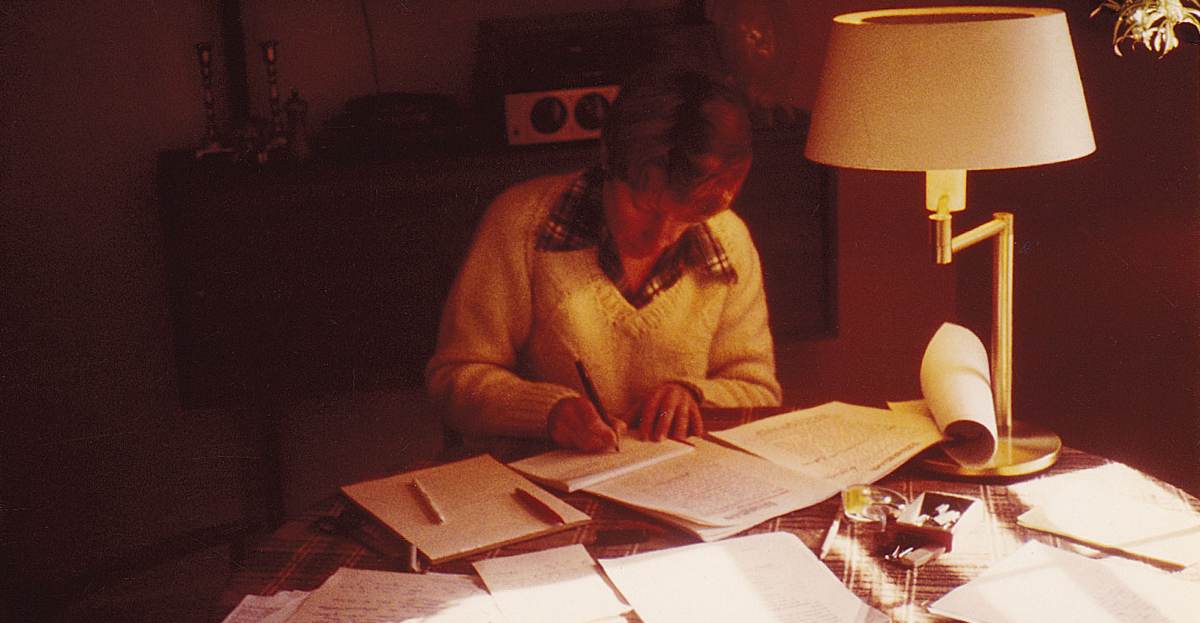
Alice Hardesty
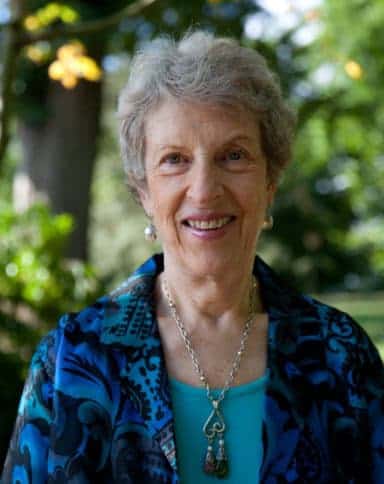
The publication of Walking with Bacho honors not only the spirit of my beloved dog, but also the stately trees and beautiful gardens of Portland’s Irvington neighborhood, where I have lived for almost nine years after leaving Ashland. September of 2018 marks my return to the natural beauty and solid sense of community that characterizes Ashland.
For most of my long career I’ve been known as Alice H. Suter, Ph.D., an audiologist with a specialty in the effects of noise on hearing, working for and consulting to government agencies, universities, and employers of noise exposed workers. My jobs with the federal government included the U.S. Environmental Protection Agency (EPA), the Occupational Safety and Health Administration (OSHA), and the National Institute for Occupational Safety and Health (NIOSH). At various times in these jobs I performed research, developed criteria, or set standards for noise exposure. Although I still keep up with some colleagues, I’ve retired from the noise business.
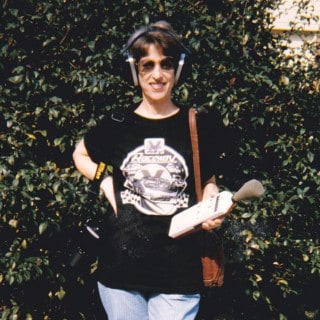
Because I married late, I kept my family name for business and professional purposes, but I’ve always preferred my husband’s name, Hardesty, so that’s what I use socially and for my writing.
How did I get to be a writer? That question has puzzled me, so recently I’ve taken a look at my writing past. I’ve studied writing with many fine teachers: Judith Barrington and Martha Gies in Oregon, and Mary Pierce Brosmer in Ohio. I’ve also attended workshops taught by renowned poets like Paulann Petersen, Stephen Dobyns, Marvin Bell, and Dorianne Laux. Inspiration and valuable practice has also come from my friend Dawn Thompson of Portland Women Writers, who has taught poetry classes in my home.
Education
I’ve always been an enthusiastic reader, but I read slowly, so I don’t spend much time on books that don’t interest me or are poorly written. In high school I loved English classes, so that when my parents took me to England for graduation, I insisted on two pilgrimages: one to Stratford-on-Avon, and the other to 50 Wimpole Street, the house where Robert Browning stole Elizabeth Barrett from her domineering father.
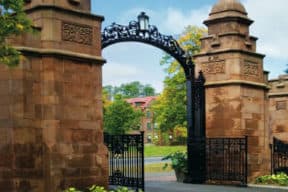
I didn’t major in English at Mt. Holyoke College because I knew I couldn’t keep up with the reading assignments. I did take a class in creative writing my junior year, but the professor was so discouraging it soured me on the whole process for more than two decades. So I majored in religion, always having been drawn to the numinous, but that too was disappointing, and I ended up doing the Bible on a speed-reading machine.
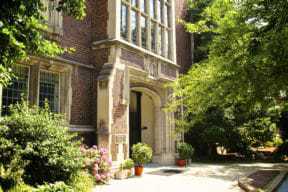
After three frigid winters in the middle of Massachusetts I decided to transfer to American University in Washington, D.C., where I spent an adventurous senior year living at the International Student house near DuPont Circle and becoming infected with “Potomac Fever.” Since there wasn’t much a woman could do with a religion major in those days, I took a master’s degree in deaf education and later went on for a Ph.D. in audiology, a field where I’ve had a long and rewarding career.
Government
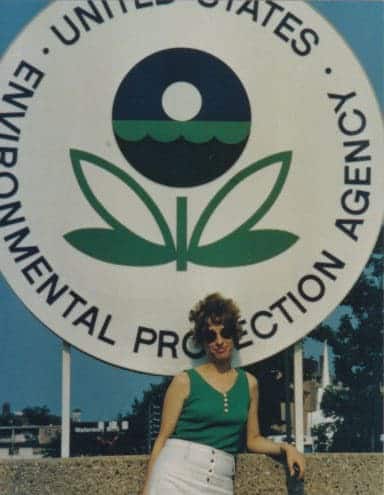 Jack and I lived in the Washington D.C. area for many years, where we both worked for the government. I started out working for the D.C. Department of Health, then to the U.S. EPA followed by OSHA in the Labor Department, and later, NIOSH in the Department of Health and Human Services. My work has always involved technical writing, even long tomes like monographs and regulations (mostly about noise exposure). I’ve published 50 articles in technical journals, but some in popular venues like MIT’s Technology Review and The Washington Post. I found myself gravitating toward jobs like editing professional newsletters and teaching graduate students in audiology how to write research papers. I had discovered that explaining things clearly and succinctly helped me as well as the reader understand complex problems.
Jack and I lived in the Washington D.C. area for many years, where we both worked for the government. I started out working for the D.C. Department of Health, then to the U.S. EPA followed by OSHA in the Labor Department, and later, NIOSH in the Department of Health and Human Services. My work has always involved technical writing, even long tomes like monographs and regulations (mostly about noise exposure). I’ve published 50 articles in technical journals, but some in popular venues like MIT’s Technology Review and The Washington Post. I found myself gravitating toward jobs like editing professional newsletters and teaching graduate students in audiology how to write research papers. I had discovered that explaining things clearly and succinctly helped me as well as the reader understand complex problems.
Meeting the Poet
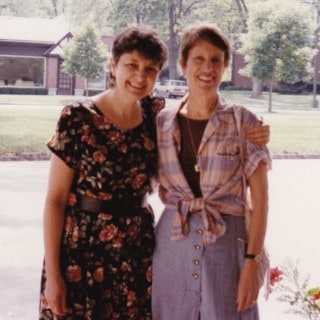
By 1988 Jack had retired early from his government job and I had an offer from the National Institute for Occupational Safety and Health in Cincinnati, so we moved there. One day I happened to go to a reading by a local poet, Mary Pierce Brosmer. I still remember the first line of the first poem she read that afternoon. It was in the voice of an entitled husband saying, “Here, put this in your purse.” The name of the poem was “Universal Donor.” I’m not sure what I had expected, but it certainly wasn’t something so surprisingly straightforward, so powerful, and so feminist! This poem didn’t need to be abstract to be poetic. It spoke of action and reaction, of relationship, of emotions of real people in real time, using words that went straight to the heart.
I signed up for Mary’s weekly workshop, “Women Writing for (a) Change,” and learned a completely new approach to writing. It was not about having to be perfect or brilliant, but about being authentic and finding the best words to express it. At the same time I could experiment with language, metaphor, and the beautiful sounds of words. I could be funny, political, mournful, or however I felt. It was a whole new world, and I was hooked.
Writing in Ashland
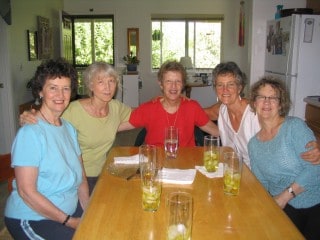
Our stay in Cincinnati was meant to be temporary, on the way to Oregon, which had been our plan when we left D.C. So in 1993 I said good-bye to Mary and our other friends, and Jack and I moved to our new home. Ashland is a small city in Southern Oregon known for its vibrant cultural life and home to the Oregon Shakespeare Festival.
The first thing I did was to sign up for writing workshops and make connections with other writers. Within a few months I had organized a women’s writing group, loosely patterned after Mary’s model. We would meet every Tuesday, devote a brief period to catching up with each other’s lives, eat some snacks (of course), and one of us would provide a prompt. We would then write for about half an hour, after which we would read aloud what we had written. Writing with a group of friends is a real gift in that it provides an opportunity to share one’s authentic self and to know others at a depth that is not usually accessible in ordinary communication.
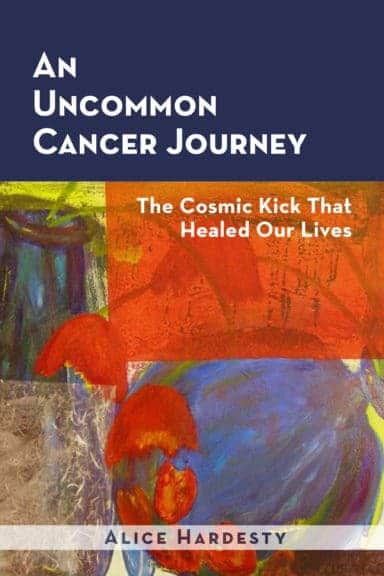 After a few years, it was time to gather my notes and memories from the journey Jack and I had taken through his “terminal” cancer prognosis to healing. Thus, every Tuesday I ignored the current prompt and wrote a new chapter or added to the previous one, and after a little more than a year the first draft emerged. Several more drafts followed, but the bones were assembled on those Tuesdays, and my faithful Ashland writing group was the book’s first audience.
After a few years, it was time to gather my notes and memories from the journey Jack and I had taken through his “terminal” cancer prognosis to healing. Thus, every Tuesday I ignored the current prompt and wrote a new chapter or added to the previous one, and after a little more than a year the first draft emerged. Several more drafts followed, but the bones were assembled on those Tuesdays, and my faithful Ashland writing group was the book’s first audience.
Jack had survived twenty-four years after his initial diagnosis of esophageal cancer, but in 2006, early in his tenure on the Ashland City Council, he died suddenly of a heart attack. I depended on my writing group and writing practices to help me through my grief. Despite my initial wariness, Jack’s friends persuaded me to run for his seat on the Council, and I’ve never regretted that decision. But after three years I’d had enough and decided to move to Portland for a new beginning.
Writing in Portland
Until very recently I’ve kept on with my consulting practice in occupational and environmental audiology, but I’ve never been without some kind of writing activity. For the past several years I’ve been part of a writing group in Portland, which is, once again, an essential part of my life, and I’ve also branched out into other writing activities. Writing will always be a necessary part of my life, one that feeds my soul.
I still write poetry when the spirit moves me. Several of my poems have been published, and some have won prizes. And now this little book of haiku, Walking with Bacho, Four Seasons in Portland [link to Books page].
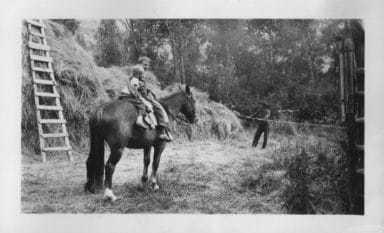
I also write essays, letters-to-the editor, journal entries, occasional rants (mostly unsent), and pieces for local publications, such as Portland’s Street Roots. My latest essay, “To Heart Mountain,” was published in Oregon Humanities in 2017. It tells the story of my visit, after an interim of 72 years, to the Heart Mountain War Relocation Center in Wyoming, where I had spent the summer of 1942 while my father supervised the construction of the camp.
For the past several years I’ve been a regular contributor to Oregon ArtsWatch, a lively on-line arts magazine. My articles are usually interviews with musicians specializing in chamber music, with a few concert reviews and interviews featuring playwrights.